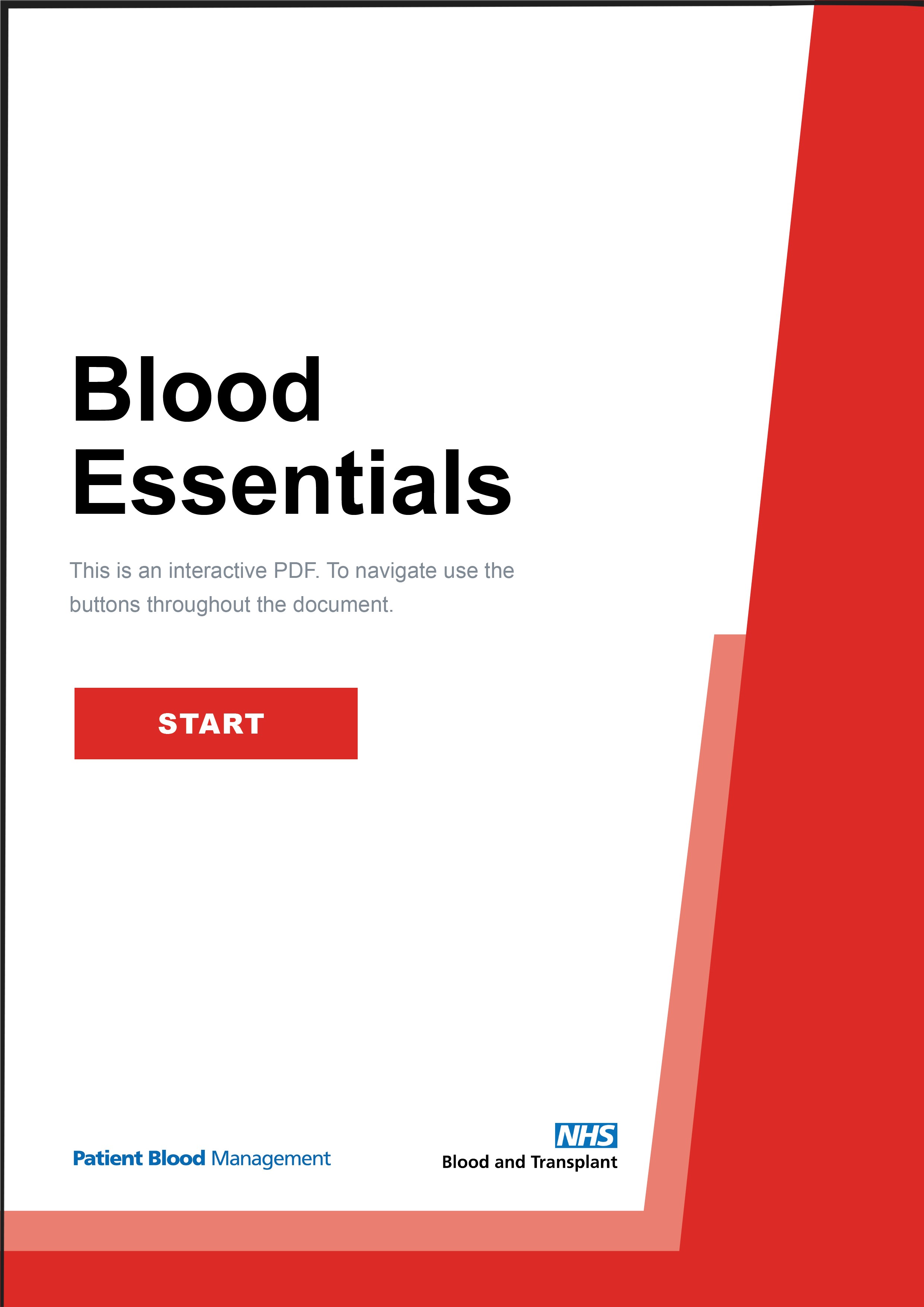Education for healthcare professionals
This page gives information about our online educational content. This includes digital resources such as Blood Essentials, as well as e-learning modules and the non-medical authorisation of blood components (NMA) course.
You can also access supporting resources and information about educational events on the topic of patient blood management and blood transfusion.
Blood Essentials

Blood Essentials is the key transfusion education and reference tool for transfusion practitioners. It supports you to establish your knowledge base and assists all healthcare professionals involved in blood transfusion.
It replaces our previous resources for new and experienced transfusion practitioners, 'A Drop of Knowledge' and 'A Wealth of Knowledge'.
Events and training resources
e-Learning
Information about our e-learning modules is listed below. You can access these through the following platforms:
Non-medical authorisation of blood components course
The non-medical authorisation of blood components (NMA) course is for regulated healthcare professionals. It provides the supporting theory required to gain competence to authorise the transfusion of blood components.
Completion of the course is not evidence of competence; the competence of any practitioner cannot be confirmed by NHS Blood and Transplant or Royal College of Nursing.
The cost is £300.
View dates and register for the NMA course
Use the following resources for more information about the NMA course:
- Clinical decision-making and authorising blood component transfusion: A framework to support non medical healthcare professionals on the JPAC website
- Examples of regional policies and competency documents on the National Blood Transfusion Committee website:
Videos
The following videos provide important information for transfusion practitioners:
Share your feedback
If you have any questions or suggestions about the resources on this page, please email the Patient Blood Management team.
Contact us at: pbm.team@nhsbt.nhs.uk
Page last reviewed: 10 February 2025



